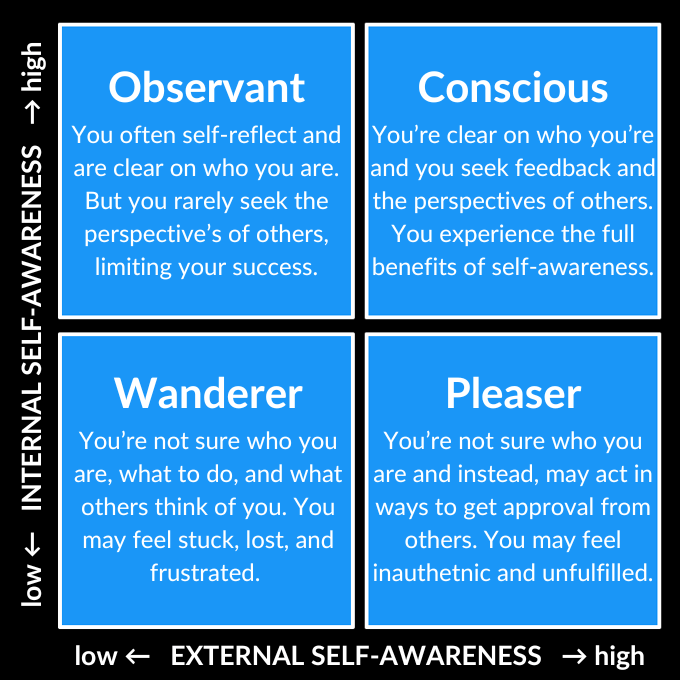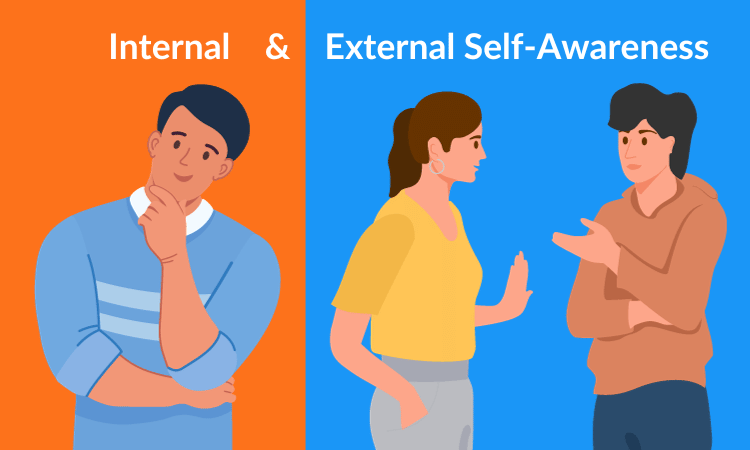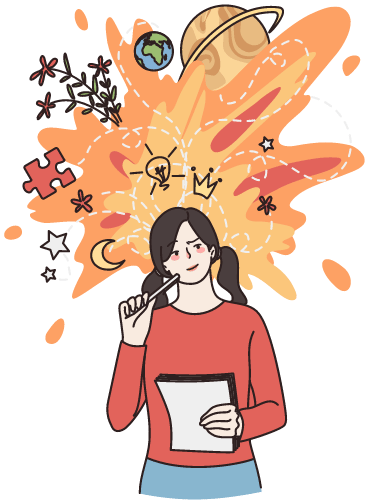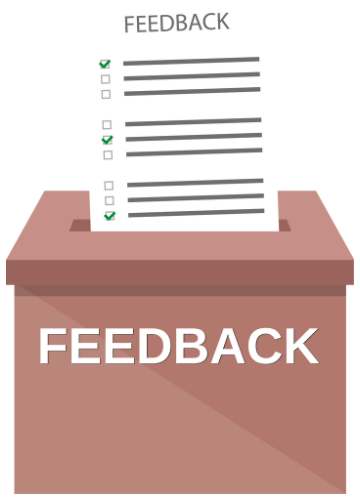Do you feel like you’re on autopilot, just going through the motions? And do you feel like you’re destined for more, but struggle to identify what’s holding you back?
You may lack self-awareness.
Without a full understanding of your personal strengths, weaknesses, core values, and motivations, you’ll struggle to get ahead. It can lead to poor decisions, relationship challenges, and unrealized potential, goals, and dreams.
You see, self-awareness is fundamental to thriving in life.
That said, only 10-15% of people are truly self-aware.
The good news is that it’s a skill that can be developed. And doing so transformed my life from feeling lost to gaining direction and feeling empowered.
In this article, we’ll dissect the levels of self-awareness and cover actionable strategies to develop it – including a simple shift to introspect the right way (yes, almost everyone is doing it wrong).
Let’s dive in!
- What is self-awareness?
- 2 Types of self-awareness
- 19 Levels of self-awareness
- Why is self-awareness important?
- Self-awareness blind spots
- Are you self-aware?
- 13 Ways to cultivate awareness of self?
P.S. Do you want to gain awareness to boost your self-confidence? Sign up for my free e-mail series to build foundational self-worth for a truly fulfilling life!

What is self-awareness?
Self-awareness is your ability to recognize and understand your thoughts, emotions, and behaviors – and how they impact yourself and others.
Being self-aware also means understanding and living in alignment with your authentic self. It involves aspects like your personality traits, core values, personal strengths and weaknesses, motivations, beliefs, and desires.
Overall, self-awareness plays a crucial role in emotional intelligence, relationships, personal fulfillment, and professional success.
And there are two primary levels of self-awareness…
2 Types of self-awareness
Organizational psychologist Tasha Eurich researched self-awareness and its importance in our personal and professional lives. You can find her most impactful findings in the best book about self-awareness: Insights.
She discovered the following two types of self-awareness:
- Internal (or private) self-awareness is the awareness of your thoughts, feelings, emotions, beliefs, motivations, and values – and how they impact your physical and mental health.
- External (or public) self-awareness is the awareness of how others perceive you. It involves the understanding of how your actions, behavior, and communication style impact those around you.
Interestingly enough, Eurich found no correlation between these two types of self-awareness. In other words, you can fully understand yourself yet lack public self-awareness, and vice versa.
Therefore, we can identify four archetypes of self-awareness:

Where do you fall on this spectrum?
Both types of self-awareness are crucial for a successful and fulfilling life. So let’s further examine them through some examples.
What are your superpowers?
Take this free personality test to uncover your personal blueprint for success and happiness. Within minutes, you gain insights into your personality and strengths, allowing you to experience more fulfillment and joy.
Discover your strengths today
Examples of internal self-awareness
Internal or private self-awareness helps you identify and manage your emotions more effectively. It also empowers better and more authentic decision-making.
Here are examples of internal self-awareness:
- Emotional self-awareness: You can recognize emotions like feeling happy, stressed, or anxious. And you understand where these emotions come from and how they influence your decisions.
- Strengths and weaknesses: You know your strengths and talents, both in your skills and character. And you understand and acknowledge your weaker areas that may require improvement.
- Personal core values: You know what’s most important to you and act in alignment with your morals, principles, and personal philosophy.
These internal self-awareness examples illustrate how impactful an accurate self-understanding is to personal effectiveness and happiness. It’s the one thing that helped me gain direction and live with more purpose and joy.
And that’s only the first type of self-awareness.
Examples of external self-awareness
External or public self-awareness enables you to communicate effectively and build stronger and fulfilling relationships. And your social life is essential to living your best life – and I say this as an introvert.
Here are three examples of external self-awareness:
- Social impact: You understand how your behavior and communication style affect those around you. For example, I’m honest and (too) direct, which others may perceive as blunt and harsh.
- Receiving feedback: You seek and reflect on feedback from friends, colleagues, or mentors – without feeling the need to defend yourself.
- Conflict resolution: You can step back from heated situations and objectively assess your role. And you can acknowledge your mistakes and identify positive steps to resolve the issue.
Understanding the differences between public and private awareness helps you find what you’re good at and troubleshoot weaknesses.
Let’s dive even deeper into self-awareness.
19 Levels of self-awareness
Self-awareness can be categorized into different levels or areas, each offering a unique perspective to self-understanding.
Learning about these levels provided me with a structured and organized way to become more self-aware. It revealed my weaknesses and enabled me to create an empowering personal development plan.
Let’s zoom in through the lens of the two types of self-awareness.
Levels of private self-awareness
Internal self-awareness is about identifying and managing yourself. While there are many levels, here are the ones that empowered me the most:
- Emotional intelligence includes recognizing and understanding your emotions, emotional triggers, and how to manage and express them.
- Personal core values refer to your guiding principles and personal philosophy. It’s about understanding what’s most important to you.
- Strengths and weaknesses mean knowing your areas of excellence as well as recognizing and navigating your weaker points.
- Life purpose involves identifying a mission that goes beyond your personal needs, connecting you to a greater source of power.
- Your motivation is about recognizing what truly drives you beyond superficial needs. It’s achievement, independence, and growth for me.
- Aspirations include an understanding of what you want to achieve in various aspects of life – and why it matters to you.
- Your passion involves a complete understanding of all your interests and the activities that genuinely excite you.
- Self-identity is about the narrative you construct about yourself, including your life experiences and interpretations of them.
- Cognitive self-awareness involves your thought processes, beliefs, mindset, mental attitude, perspective, and cognitive biases.
- Behavioral awareness relates to recognizing and understanding how you act and behave in various situations.
- Physical awareness encompasses the mind-body connection and being able to recognize physical well-being and discomfort.
- Creative self-awareness involves understanding your creative needs, abilities, and preferred processes and self-expression.
Increasing private self-awareness leads to more authentic decisions, better self-management, and greater happiness. It’s what changed my life.
Levels of public self-awareness
Public self-awareness is about understanding and managing how others perceive you. And identifying these levels of awareness transformed my interpersonal effectiveness:
- Preferred communication style means recognizing how you communicate, listen, and express yourself in your interactions.
- Social awareness relates to your understanding of how your behavior impacts others. It involves recognizing social cues and adapting your communication style to various situations.
- Social perception means having an understanding of how others perceive you. It includes seeking and being receptive to feedback.
- Conflict resolution involves an understanding of how you handle conflicts, disagreements, and challenges within your relationships.
- Personal boundaries involve recognizing your (unspoken) rules in relationships and how they affect your connection and intimacy.
- Contextual awareness is about understanding how others perceive your words and actions in different social and cultural contexts. And it involves your ability to adapt to these situations.
- Leadership awareness means recognizing how your leadership approach influences your team’s dynamics. It involves adapting your leadership style to foster a positive and productive work environment.
Developing your public self-awareness leads to effective communication and stronger relationships, leading to more success and happiness.
Leveling up all these areas leads to greater fulfillment in life.

Did you just skip over the list above? If so, read them again and wonder for a few seconds (or minutes) how self-aware you are in each area.
And let me stress this again: self-awareness it’s the single most important factor that transformed my life from feeling lost to feeling empowered.
Self-awareness changes everything for the better. And here’s why…
Why is self-awareness important?
Self-awareness is important because it affects all areas of your life. It has impacted my well-being, the quality of my relationships, and transformed my career from just having a job into a meaningful and joyful pursuit.
Here are the key reasons why self-awareness is crucial:
- Less stress.
- More creativity.
- More self-control.
- Higher productivity.
- Increased resilience.
- Increased motivation.
- Better self-management.
- Better overall well-being.
- More emotional intelligence.
- Higher self-esteem and more confidence.
- Better and more authentic decision-making.
- Better understanding of yourself and the world.
- Fewer false assumptions and cognitive biases.
- Avoids false confidence.
- Clearer communication.
- Stronger relationships.
- More effective leadership.
- Increased job performance.
- Faster career advancement.
- Better conflict-resolution skills.
- Better time-management skills.
- More meaningful achievements.
- More personal and professional fulfillment.
- Accelerated personal and professional growth.
- And the list goes on…
Self-awareness is the most important skill to master to live your best life. It impacts every aspect of your existence, on all levels.
So what’s holding you back from becoming self-aware?
Self-awareness blind spots
Becoming self-aware is challenging because there are many blind spots – and we’re often unaware of our own.
For example, I struggled as an introvert and tried to be like my extroverted friends, which drained my energy.
How did I escape that cycle?
It’s a process that took me years:
- I first had to learn that I was an introvert.
- I then had to accept and appreciate that fact.
- And finally, I had to learn about my introverted strengths so they would become my superpowers – not my enemy.
Going through this process helped me live in alignment with my true nature, resulting in better relationships, more happiness, and success.
That was one of my blindspots, but there are many more…
List of 12 common pitfalls and blind spots to self-awareness
- Unexamined self: Do you often introspect and self-reflect? If not, you might miss the inner clues that hold you back from transforming your life.
- Confirmation bias: We tend to seek and pay attention to information that confirms our existing beliefs and ignore contradicting information.
- Cognitive dissonance: When your beliefs and actions conflict, you may rationalize your actions rather than confront the incongruence.
- Emotional blind spots: You may struggle to recognize and understand your emotions, especially when they’re complex or uncomfortable.
- Habitual patterns: Everyone has automatic habits and behavioral patterns that don’t serve them. Some of which can be difficult to spot.
- Dunning-Kruger effect: This cognitive bias refers to overestimating your competence in a domain in which your actual ability is lower.
- Defensive mechanisms: When facing criticism or challenges, you may default to defense mechanisms like denial to protect your self-image.
- Social comparison: You feel better or worse when you compare yourself to those who are doing worse or better than you.
- Fear of self-reflection: You avoid introspection due to fearing what you might discover about yourself, especially if it challenges your identity.
- Temporal blindness: You underestimate the degree to which you change, and get stuck in rigid and disserving self-concepts and stories.
- Limited perspective: You may view the world through a limited view, like your role at work, your way of being, or your sex life.
- Contextual blind spots: Self-awareness in one area might cause you to approach all other areas from that same perspective, whereas another lens should be applied to these situations.
As you see, there are quite a few blind spots to watch out for.
And if you’re like me, you’re subject to many of those pitfalls. Even though I’ve been working to improve self-awareness for over a decade, I still fall prone to many of them.
But although I’m still prone to these pitfalls, self-awareness increased my ability to recognize and disarm these disrupting patterns much faster.
That raises the question:
Are you self-aware?
Many people wonder if they’re self-aware.
But self-awareness is a skill.
So rather than asking yourself whether you’re self-aware or not, it’s more helpful to wonder how self-aware you are.
Rate yourself on each of the items below from 1 to 10:
- Self-reflection: You take time to review situations, thoughts, emotions, and behaviors. And you challenge yourself to explore what makes you feel and act in certain ways – and how you can better manage yourself.
- Journaling: Writing slows the thinking process, which crystallizes your thoughts. Do you have some kind of writing practice for introspection?
- Feedback: You actively seek feedback from different people to gain a broader perspective. Consider broad feedback questionnaires and individual feedback requests, like straight after a presentation.
- Mindfulness: Do you engage in any form of meditation or mindfulness practice? Do you pay close attention to what you do and in conversations or do you always seek other distractions?
- General knowledge: Do you occasionally study emotional intelligence, psychology, philosophy, and self-help literature? Studying these topics and reading the most life-changing books increases your self-understanding.
- Self-assessment: Do you gain perspective from various angles, such as free personality tests? And do you often review your results and seek ways to apply them?
- Value alignment: Do you frequently reflect on your values? And do you seek alignment between your values and your decisions and actions?
- Openness to growth: Do you seek opportunities to grow and develop yourself? And do you embrace obstacles and challenges or do you avoid failure and fear at all costs?
- Responsiveness: Do you pay attention to your emotions, feelings, and reactions? Can you take a step back in conversations to respond thoughtfully or do you often react impulsively?
- Emotional awareness: Do you feel in tune with your emotions? And can you understand the message behind them once they occur?
- Self-criticism: Are you able to acknowledge your mistakes and learn from them? Can you catch self-criticism and apply self-compassion?
- Empathy: Can you understand and get in touch with the perspectives of others, even if they’re different from your own? And do you respond with respect and consideration of other people’s viewpoints?
Now count up your total score and divide it by 12 to provide your final score on a scale from 1 to 10.
While this self-assessment is subject to the Dunning-Kruger Effect and other biases, it should give you a general idea of your level of self-awareness.
So, what if you’re unhappy about your result?
13 Powerful ways to cultivate awareness of self
I’ve already mentioned the power of cultivating self-awareness. It’s a valuable skill that accelerates personal growth, improves well-being, builds stronger relationships, and leads to more personal fulfillment and happiness.
We’ll cover both public and private self-awareness techniques, starting with the latter and moving towards the prior.
#1: Introspect the RIGHT way with BETTER questions
Most people introspect the wrong way.
That group included me until I read Eurich’s findings. She found that most people ask themselves disempowering WHY questions.
- Why am I so stupid?
- Why did I make this mistake?
- Why do I keep doing this the wrong way?
- Why do bad things always happen?
- Why am I such a failure?
Asking yourself such “why” questions is often ineffective and can even be counterproductive or harmful.
The reason is simple:
We struggle to come up with accurate answers. Yet, your brain will provide answers to any question you ask internally, regardless of its accuracy. Why questions are also often negative in nature, focus on self-judgment, and prompt the victim mentality.
So what to do instead?
Ask yourself WHAT and HOW questions.
- What can I do to improve my understanding in this area?
- What led to this mistake, and how can I prevent it in the future?
- How can I develop better strategies for doing this task correctly?
- How can I proactively manage or respond to challenges in the future?
- What can I learn from this situation and how should I adapt my strategy?
WHAT and HOW questions are more positive and constructive. They focus on problem-solving and growth, rather than self-criticism and blame.
When introspecting, default to WHAT and HOW questions.
#2: Visualizing your best self and your perfect life
Visualization is a powerful and fun technique that you can use for different purposes, including self-awareness.

By vividly imagining the best version of yourself and your ideal life, you tap into the principles of positive psychology. This includes a focus on strengths, virtues, self-actualization, and well-being.
It’s like having a chat with your older and wiser self, providing free mentorship to you in the present moment.
Here’s a visualization practice that I use a lot:
- Find a quiet place: You can sit or lie down in any comfortable yet quiet place, as long as you won’t be disturbed. Close your eyes.
- Set a clear intention: What aspect of your best self or ideal life do you want to focus on? Think about career success, personal relationships, or your health and overall well-being.
- Deep breathing: Breathe deeply for a few minutes to relax yourself and prepare your mind. Inhale deeply through your nose and exhale slowly through your mouth, leaving no rest in between your breaths.
- Gratitude priming: Spend a minute on gratitude by focusing on the positive aspects of your life. The energy you gain from gratitude will make your visualizations more powerful and effective.
- Visualize your ideal self: Picture who you aspire to become. Visualize every small detail, including your achievements, how you carry yourself, and how confident you feel. And engage all your senses. What do you see, hear, feel, and smell in this vision?
- Visualize your ideal life: Imagine your perfect life in great detail. Where do you live? What do you do on a daily basis? How’s the quality of your relationships? Visualize your goals and aspirations being achieved.
- Experience the sensations: Let the positive emotions wash over you. Feel the joy, satisfaction, and contentment of this visualization.
In addition, you can visualize your next steps to your best life.
You can acknowledge challenges, obstacles, and setbacks while seeing yourself overcome them with determination and resilience.
Prefer this visualization in a guided session? Here’s the one that I frequently use, which became my inspiration for the steps above:
Visualization is most effective when done regularly. That’s why I incorporate this practice as part of my morning routine. But you can do it at any time, so choose a moment that you can stay consistent with.
Finally, consider…
#3: Start an introspective writing practice
Journaling is often mentioned as a powerful tool because there’s great power in writing stuff down. The process slows your thinking process which forces your brain to sit with each thought a little bit longer.
And magic happens when it does.
Here are a few journaling ideas:
- Visualization journal: Record your visualizations and insights.
- Daily reflections: Explore your thoughts, emotions, and experiences.
- Gratitude journal: Focus on what you’re thankful for each day.
- Mindfulness journal: Describe present-moment experiences.
- Emotional journal: Explore your feelings by writing about them.
- Goal journaling: Set goals and track your journey.
- Dream journal: Write about and analyze your dreams.
- Self-help journal: Track self-improvement efforts.
- Stream of consciousness writing: Free-flowing thoughts.
- Self-discovery cards: Answer thought-provoking questions.
- Decision journal: Analyze current decisions or past choices.
- Self-reflection letters: Write letters to your past, present, or future self.
- Inner dialogue: Have conversations with yourself, exploring questions or viewpoints from different angles and perspectives.
The key to effective journaling for self-awareness is consistency and honesty. If you want to make that process easier, try out some of the best guided journals.
#4: Take a personality test
I love personality tests and I’ll tell you why.
For the longest time, I was really struggling with myself but couldn’t figure out why. Later, I found out that my biggest issue was a lack of self-acceptance.
As an introvert, I wanted to be like my extroverted friends.
It wasn’t until I learned about myself that I could accept and appreciate who I was. And once I made decisions that aligned with my nature, my life began to improve tremendously.
While the best self-awareness books provided initial insights and gave me hope, personality tests offered a real breakthrough for me. They also made me see the positive aspects of my personality, fostering self-acceptance.
To this day, I still take personality tests to uncover any traits, behavioral patterns, strengths, and flaws to uncover any areas I’m blind to.
Here’s why they can be effective for you too:
- They offer an unbiased and honest external perspective.
- They uncover your communication preferences and differences to help you understand your interactions and relationships with others.
- They provide career guidance, which empowered me to transition into a more meaningful and fulfilling career.
- Most of the test results provide actionable steps for self-improvement.
You can view a list of the best free personality tests here.
If you haven’t done a personality test in recent years, I recommend the Myers-Briggs Type Indicator (MBTI), also known as the 16 Personalities Test.

While MBTI isn’t considered the most accurate test on the market, it is the easiest to understand without a psychology background. It has been around for ages, is very insightful, super actionable, and is the most popular test to date.
Finally, check out my Truity review, the best online personality and career test provider.
#5: Know your strengths and weaknesses
Understanding your personal strengths and weaknesses is a fundamental aspect of self-awareness. It provides clarity on your abilities, limitations, and areas for personal growth.
While you can get better at anything, leading with your strengths is more joyful and often results in more success, faster.
For example, selling services was part of my job as a consultant.
Most people would influence clients verbally.
But since my strengths are execution, organization, and detail-oriented, I prefer a show-and-tell approach. I would deliver quality work, before the deadline, and go the extra mile when possible.
As a result, my clients happily came back for more.
While I still work on verbal persuasiveness and other weaknesses, I prioritize and lead with my strengths.
It’s my competitive edge.
You see, there’s rarely just one approach to do something. And the “best” way always depends on the individual, the context, and the situation at hand.
That’s why I would suggest identifying your strengths – and finding angles to apply them.
Here we covered the top 5 strength tests on the market.
#6: Practice meditation
Mindfulness and meditation practices help you become more in tune with your thoughts, emotions, and overall state of being.
- Meditation is a structured mental exercise that comes in many forms but requires dedicated time. The purpose of meditation is to train your mind through a heightened state of awareness.
- Mindfulness is a mental practice that involves paying full attention to the present moment without judgment. You can do this exercise at any time during the day, whether you’re working, walking, or eating. Focus your undivided attention on the activity you’re doing at that moment.
While mindfulness simply means paying attention to the present moment, mediation embodies a gazillion techniques.
Here are a few beginner-friendly ideas to explore:
- Starting point: Find a quiet, comfortable space to sit or lie down. Close your eyes if you like. Take a few deep breaths to relax.
- Mindfulness meditation: Focus your attention on the present moment. Pay attention to your breath and the sensation of air entering and leaving your body. When your mind begins to wander, gently bring it back to your breath without judgment. Wandering thoughts is a normal part of the process and your focus will improve over time.
- Body Scan: Mentally “scan” your body from head to toe, noting any tension, discomfort, or sensations. Focus your attention on each body part for several seconds before moving on. When you notice that your mind begins to wander, gently bring your attention back to the exercise without self-judgment.
- Thought observation: Observe your thoughts as they arise. Rather than getting caught up in the content of your thoughts, observe them from an outside perspective, like watching clouds passing in the sky.
- Emotional awareness: Pay attention to your emotions. How do you feel right now? Is there a particular emotion that stands out?
- Guided meditation: There are plenty of guided meditation sessions for various meditation styles, including each one in this list. Below is one of my all-time favorites:
You can also opt for micro-meditations. This simply means taking brief pauses throughout your day to take a step back, take a few deep breaths, and connect with your thoughts, emotions, and inner state.
This simple exercise reduces stress, refocuses your mind, and promotes your overall well-being.
#7: Read and listen to insightful content
Insightful content can include books, this blog (wink), podcasts, lectures, and anything else that offers valuable perspectives, knowledge, and wisdom on personal growth, philosophy, and human behavior.
You see, a single book changed my entire worldview.
While reading Awaken the Giant Within, I felt like the blueprint of my life was unfolding before my eyes. It exposed me to new ideas and provided profound insights into my thinking and behavioral patterns.
Now, this book was not a magic pill.
But it taught me how little I knew about myself. And it sparked my drive to learn more about myself, something I still feel passionate about today.
But… What book should you read?
Here are a few suggestions:
- The best books on self-awareness
- The best books about finding purpose
- Complete list of book recommendations
My general recommendation is to explore different authors, new topics, and opposing views and perspectives to broaden and deepen your understanding of yourself and the world.
Also make sure you reread the best books, take and review notes, and schedule time to think about what you’ve read. And, of course, turn knowledge into wisdom by taking action on what you learn.
#8: Embark on solo adventures
Traveling by yourself or embarking on solo adventures such as long one or multi-day hikes can provide transformative self-insights.
I’ve personally grown and learned a lot from backpacking. Not just about myself, but also about relationships and the world overall.
What if you can’t leave your place for a long time?
Then you can embark on low-commitment adventures.
For example, when I feel lost, I often go for a long solo hike to ponder my thoughts, explore my options, and clarify my next steps in life.
Solo adventures are powerful for self-discovery.
While most people avoid loneliness like the plague, being by yourself offers unique insights. And if you always distract yourself with stuff, activities, or other people, you’re robbing yourself of insights you won’t get elsewhere.
Going on a solo adventure taps into the power of solitude. And changing your environment can ignite your creative genius.
I’m not saying that this will work for everyone.
But there’s only one way to find out if it works for you.
Plan your adventure and take the plunge.

#9: Accept what is
Acceptance means acknowledging and embracing what you’re thinking, feeling, or experiencing in the present – without judgment or resistance.
You see, we often resist negative emotions or experiences.
We distract ourselves from feeling lost, lonely, sad, anxious, and frustrated.
Yet, acceptance – not denial – is the first essential step to make positive change happen. Acknowledging your demons, flaws, mistakes, failures, and weaknesses takes their power away.
Here’s how self-acceptance improves self-awareness:
- Non-judgment: Acceptance means you no longer feel the need to judge yourself, allowing you to view situations objectively.
- Emotional intelligence: When you accept your emotions without judgment, you become more attuned to your emotional experiences.
- Authenticity: Self-acceptance enables you to explore your genuine motivations, desires, and values.
- Resilience: Understanding your limitations fosters self-confidence, equipping you to bounce back from setbacks and challenges.
- Relationships: Acknowledging your flaws makes you more relatable to others, leading to healthier and more empathetic relationships.
Self-acceptance allows you to explore your inner world with compassion and curiosity, improving self-awareness and personal well-being.
#10: 360-Degree Feedback Method
The 360-degree feedback method is a performance evaluation tool often used for employee and leadership development. However, you can use this idea in your personal life too.
Here’s how the 360-degree feedback method works:
- Ask if people want to provide feedback: Consider your friends, family, colleagues, boss, clients, partner, and other relatives. The objective is to gather feedback from different perspectives.
- Provide the questionnaire: Create a survey that includes a mix of closed- and open-ended questions to avoid biases. Having a structured questionnaire encourages people to provide feedback.
- Collect the data: Request the feedback to be filled out by a specific date. Encourage them to be honest and unbiased. You can send a Google Survey for free, which also has the option to enable anonymity.
- Analyze the data: Rather than judging whether you agree or disagree with the answers, seek to understand where they come from. Another benefit of a structured questionnaire is that you can compare answers to identify patterns.
Getting a 360 perspective provides a balanced view of your positive character traits and strengths, and potential pitfalls and weaknesses.
#11: Immediate Feedback Method
The Immediate Feedback Method is a way to collect feedback immediately after a certain performance or activity.

Here’s what you should know about the Immediate Feedback Method:
- Get real-time feedback: The idea is to request feedback immediately after completing a task or activity. The Immediate Feedback Method is typically short and very specific. For example, you can ask for one thing that went well and one thing you should improve after a presentation.
- Various ways to collect feedback: You can request feedback in a verbal or written form, with or without a structured questionnaire.
- Correction and reinforcement: The Immediate Feedback Method is especially helpful in recognizing errors to prevent future mistakes. And you can use it to reinforce correct knowledge, habits, and behaviors.
The Immediate Feedback Method is a valuable habit to build to gain a better understanding of specific skills. It also provides insights into your strengths, weaknesses, and blind spots.
#12: Focus on non-verbal cues
Improve your emotional and social intelligence by focusing on others.
Non-verbal cues often provide a lot of information, especially when you recognize incongruences between one’s verbal and non-verbal responses.
And when you do, ask follow-up questions to uncover the real truth.
For example, I asked my girlfriend if she wanted to meet up with some of my friends. While she agreed, I noticed she wasn’t too happy about it.
Feeling upset was my initial response.
And that was my good right, in my opinion. After all, we often met her friends when I didn’t feel like it.
But meeting my friends wasn’t the problem.
When I pointed out her non-verbal cues and asked her why she didn’t seem to be happy, she told me that we already had plans to go out for dinner together – something we hadn’t done in ages.
Oops…
Getting to this truth enables us to work out a solution together.
Being present and focusing on non-verbal cues provides immediate feedback that can help you improve both social and self-awareness.
#13: Hire a coach or therapist
When you still struggle to become self-aware after all these tips, one of the best things you can do is get help from a coach or therapist.
Here’s why:
- Professional guidance: They’re trained to help you explore your thoughts, emotions, and behaviors in a structured way.
- Objective perspective: They offer an unbiased viewpoint, helping you recognize patterns or blind spots you might not see on your own.
- Tailored approach: They provide personalized guidance, offering techniques and exercises specific to your needs.
- Emotional support: They create a safe space, enabling you to dive deeper into self-exploration without fearing judgment.
- Feedback and reflection: They encourage self-reflection and offer feedback to guide you through this process.
While coaches and therapists can help you gain self-insights, there’s a crucial difference between the two:
- Coaches primarily focus on the present and future. They provide a solution-oriented approach to identify obstacles, develop action plans, and provide accountability to reach your objectives.
- Therapists focus on the past and the present to address emotional, mental, or psychological issues. They use various approaches to explore underlying issues and help you understand and manage yourself to improve your well-being.
The best option depends on your specific struggles and needs. You can try both pathways if you’re unsure to find the approach that works best for you.
Engaging with a coach or therapist is a courageous step that can accelerate growth and improve your well-being. It’s something I wish I had done when I was younger.
What’s next?
Self-awareness is an essential skill to experience more fulfillment and live a more authentic life. Creating your best life requires insights into who you are, what’s most important to you, and how you interact with others.
Key takeaways:
- Self-awareness impacts all areas of your personal and professional life, from better decision-making to enhancing your leadership skills.
- There are two primary types of self-awareness: internal (private) and external (public). While excellence in one is no guarantee for proficiency in the other, they’re both crucial in their own right.
- Combine internal self-awareness tools like journaling and meditation with external tools like personality tests and seek feedback to develop a complete and comprehensive self-understanding.
Further tools and resources to develop self-awareness:
- Best guided journals for self-discovery and growth
- 7 best personality tests on the market you can take for free
- A list of the best books on self-awareness
Take action: Take a personality test and reflect on the insights. Where do the results stem from? In what situations do they appear most? And how can you use these insights to improve the quality of your life?
Do you want to deepen your self-awareness and build a more authentic and fulfilling life? Sign up below to receive practical tips and insights to create the life you’re meant to live!

